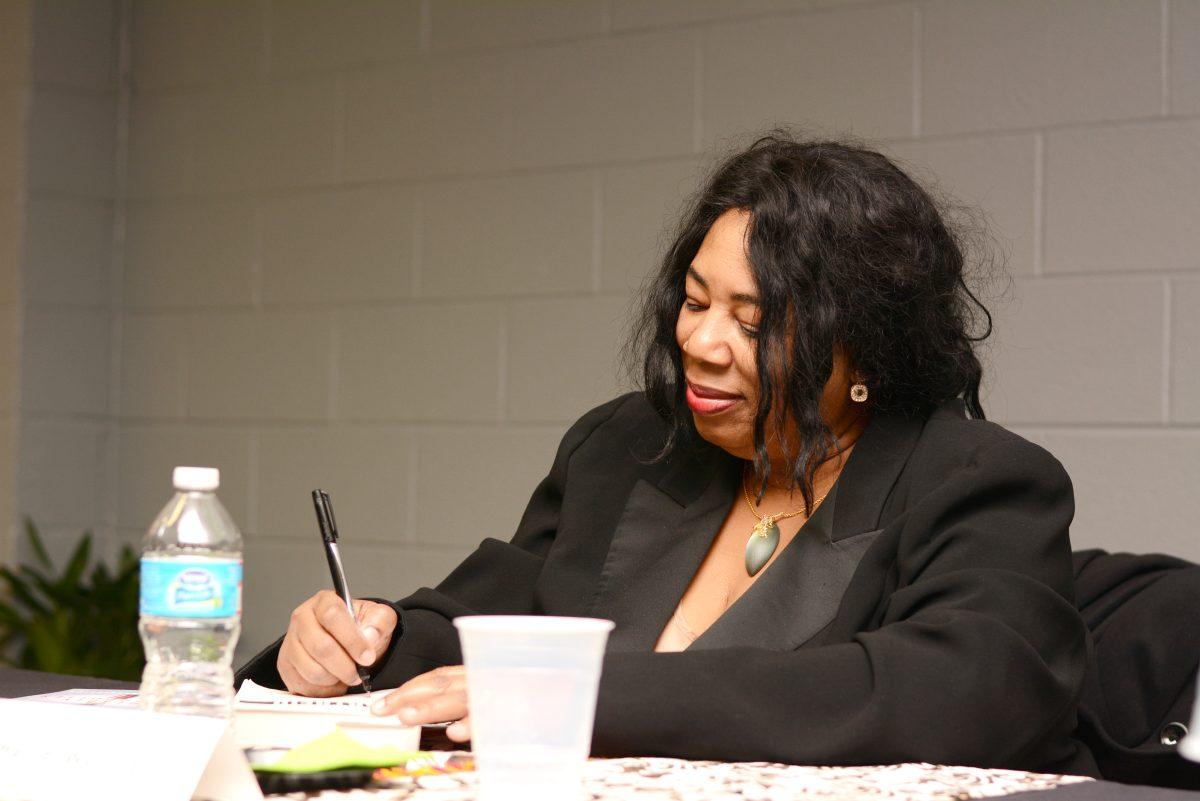
Chris Rupert
Harriet Washington, winner of the National Book Critics Circle Award and author of the Medical Apartheid and Deadly Monopolies signs books Feb. 6, 2014 in the Washington Sankofa Room in Witherspoon. Washington spoke on the effect corporations have in the medical field. Photo by Chris Rupert
Medical ethicist and author Harriet Washington spoke on Thursday about the unjust medical treatment slaves received in the past. The presentation, which was part of the Lawrence M. Clark Lecture Series, was held in the Witherspoon Student Center and packed the Washington Sankofa Room to the brim.
Washington travels internationally to universities and conferences to speak.
She said it was gratifying for her that so many people came to the lecture and that her work has meant something to them.
“I have spoken in this area twice before,” Washington said. “I like the people here, and I am very moved by the fact that this area has such a rich history in terms of medicine. I feel as though the people here deeply understand things that have happened in the past and the livery of healthcare today.”
Washington spent most of her lecture speaking about the medical history revolving around slavery, and spent some time answering questions as well.
During her lecture, Washington said the way that female African American slaves were treated was immoral. She said enslaved women were constantly being used as test subjects for procedures because they were not allowed to say no.
According to Washington, white physicians did not need the consent of African American women in order to conduct surgery on them and would therefore do so whenever they pleased. Washington reiterated how unjust and unethical this system was and how crucial it is for people today to be aware of what has happened.
“It’s really important that people know about these issues because science and medicine are predicated on facts,” Washington said. “For too long, a lot of historical facts have been either hidden or neglected and that makes it impossible to understand the things that have transpired today.”
Washington said understanding the history of the nation helps to explain the reasons for healthcare disparities today and not looking into the past “is like trying to treat a patient without taking a medical history of them.”
She went into detail about how economics played an important role in the conflicts between physicians from different races. For example, she said white physicians who felt threatened by African American doctors would take them to trial if one of their patients passed away during a procedure. If the African American physicians did not have a white person to testify for them, then they could end up being sentenced to death.
Tova Williams, a senior in polymer and color chemistry, was part of the audience Thursday evening.
“I came to this event because I love to support the African American Cultural Center and learn more about my history,” Williams said.
Williams heard about the event through the AACC event flyer.
“I think it is very important that people are educated on this sort of medical history in order to prevent it from happening to groups of people in the future,” Williams said.